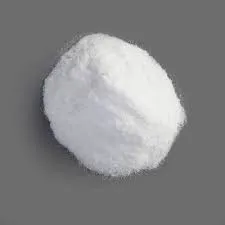Warning: Undefined array key "title" in /home/www/wwwroot/HTML/www.exportstart.com/wp-content/themes/1198/header.php on line 6
Warning: Undefined array key "file" in /home/www/wwwroot/HTML/www.exportstart.com/wp-content/themes/1198/header.php on line 7
Warning: Undefined array key "title" in /home/www/wwwroot/HTML/www.exportstart.com/wp-content/themes/1198/header.php on line 7
Warning: Undefined array key "title" in /home/www/wwwroot/HTML/www.exportstart.com/wp-content/themes/1198/header.php on line 7
- Afrikaans
- Albanian
- Amharic
- Arabic
- Armenian
- Azerbaijani
- Basque
- Belarusian
- Bengali
- Bosnian
- Bulgarian
- Catalan
- Cebuano
- China
- China (Taiwan)
- Corsican
- Croatian
- Czech
- Danish
- Dutch
- English
- Esperanto
- Estonian
- Finnish
- French
- Frisian
- Galician
- Georgian
- German
- Greek
- Gujarati
- Haitian Creole
- hausa
- hawaiian
- Hebrew
- Hindi
- Miao
- Hungarian
- Icelandic
- igbo
- Indonesian
- irish
- Italian
- Japanese
- Javanese
- Kannada
- kazakh
- Khmer
- Rwandese
- Korean
- Kurdish
- Kyrgyz
- Lao
- Latin
- Latvian
- Lithuanian
- Luxembourgish
- Macedonian
- Malgashi
- Malay
- Malayalam
- Maltese
- Maori
- Marathi
- Mongolian
- Myanmar
- Nepali
- Norwegian
- Norwegian
- Occitan
- Pashto
- Persian
- Polish
- Portuguese
- Punjabi
- Romanian
- Russian
- Samoan
- Scottish Gaelic
- Serbian
- Sesotho
- Shona
- Sindhi
- Sinhala
- Slovak
- Slovenian
- Somali
- Spanish
- Sundanese
- Swahili
- Swedish
- Tagalog
- Tajik
- Tamil
- Tatar
- Telugu
- Thai
- Turkish
- Turkmen
- Ukrainian
- Urdu
- Uighur
- Uzbek
- Vietnamese
- Welsh
- Bantu
- Yiddish
- Yoruba
- Zulu
Јул . 31, 2024 10:24 Back to list
Exploring the Applications and Benefits of Sodium Saccharin in Food Industry and Beyond
The Use of Sodium Saccharin An Overview
Sodium saccharin, a synthetic sweetener, has been a subject of both interest and controversy since its discovery in the late 19th century. As one of the earliest artificial sweeteners, saccharin was first identified in 1879 by chemist Constantin Fahlberg, and it has since carved out a significant niche in the food and beverage industry. This article will explore the uses, regulatory aspects, and ongoing debates surrounding sodium saccharin.
Uses of Sodium Saccharin
Sodium saccharin is primarily used as a sugar substitute due to its intense sweetness—it is approximately 300 to 500 times sweeter than sucrose (table sugar). This remarkable potency allows manufacturers to use it in very small quantities, making it a cost-effective option for sweetening a variety of products. It is commonly found in diet sodas, low-calorie snacks, and sugar-free candies, appealing to health-conscious consumers and individuals with dietary restrictions, including those with diabetes.
In addition to its popularity in the food industry, sodium saccharin is also used in pharmaceuticals and oral care products. Its ability to mask unpleasant tastes makes it an ideal additive in medications. Moreover, it is found in toothpaste and mouthwash, providing a sweet flavor profile without contributing to tooth decay, which is particularly beneficial in dental hygiene products.
Regulatory Status and Safety Concerns
Despite its widespread use, sodium saccharin has faced scrutiny over the years regarding its safety. In the 1970s, studies linked the consumption of saccharin with bladder cancer in lab rats, leading to a temporary ban in some countries and mandatory warning labels in others. However, subsequent research revealed that the mechanism causing cancer in rats did not apply to humans. After reconsideration, the U.S. Food and Drug Administration (FDA) removed the warning label in the 2000s, and saccharin was recognized as safe for consumption.
sodium saccharin use

Today, sodium saccharin is classified as generally recognized as safe (GRAS) by the FDA and is permitted for use in various food products. However, as with many artificial sweeteners, regulatory bodies still recommend moderation, advising consumers to be mindful of their overall intake of artificial additives.
Balancing Benefits and Concerns
The increasing prevalence of obesity and related health issues has driven up the demand for low-calorie and sugar-free products, leading many consumers to seek alternatives to sugar. Sodium saccharin fits the bill, offering a sweet taste without the accompanying calories, which can assist in weight management and appealing to those managing blood glucose levels.
However, the ongoing debates surrounding artificial sweeteners, including sodium saccharin, highlight the need for more education and research. Some consumers remain skeptical about the long-term health effects of consuming artificial additives, even as regulatory bodies assert their safety. Additionally, the potential impact of artificial sweeteners on gut health, metabolism, and appetite regulation is still an area of active investigation.
Conclusion
In summary, sodium saccharin serves as a vital sweetening agent in many low-calorie and sugar-free products, providing a valuable resource for consumers seeking healthier alternatives. While its safety has been established by regulatory authorities, ongoing discussions about artificial sweeteners underscore the importance of informed consumption. For those navigating dietary choices, understanding both the benefits and potential concerns associated with sodium saccharin can pave the way for more balanced food selections. As research continues, the future landscape of sweeteners will undoubtedly evolve, reflecting changing consumer preferences and the ongoing quest for healthier lifestyles.
Latest news
-
Certifications for Vegetarian and Xanthan Gum Vegetarian
NewsJun.17,2025
-
Sustainability Trends Reshaping the SLES N70 Market
NewsJun.17,2025
-
Propylene Glycol Use in Vaccines: Balancing Function and Perception
NewsJun.17,2025
-
Petroleum Jelly in Skincare: Balancing Benefits and Backlash
NewsJun.17,2025
-
Energy Price Volatility and Ripple Effect on Caprolactam Markets
NewsJun.17,2025
-
Spectroscopic Techniques for Adipic Acid Molecular Weight
NewsJun.17,2025

